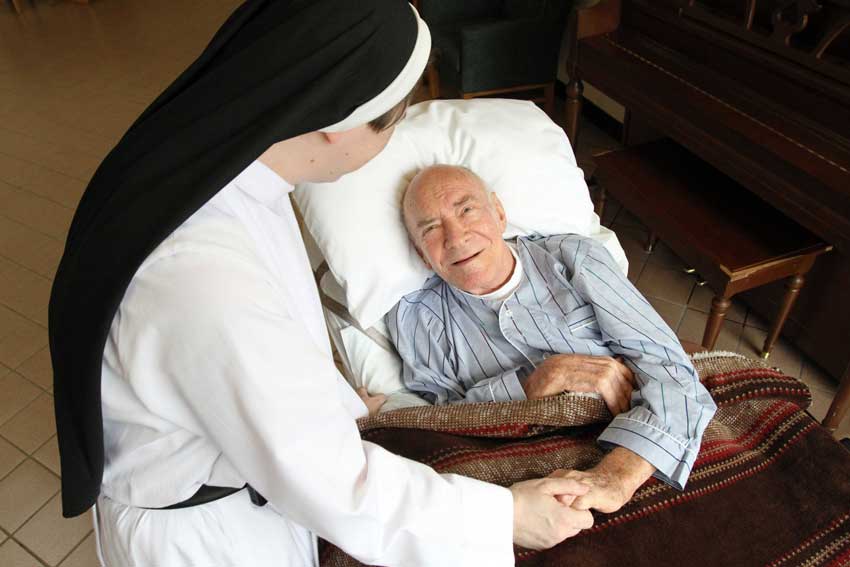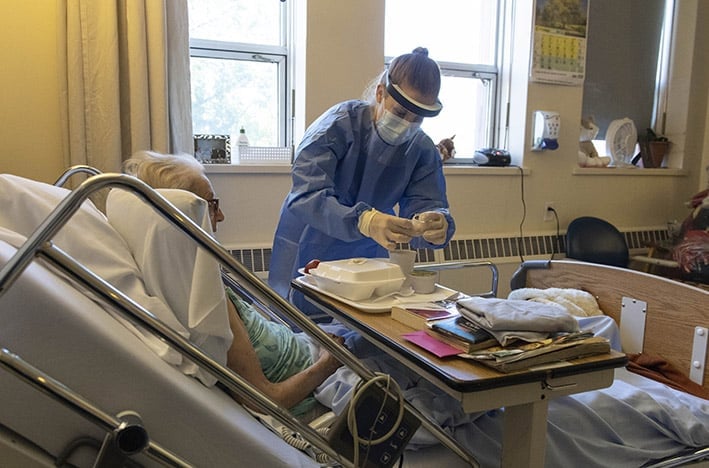
When my grandmother was dying, our family was confused about the morality of giving or withholding certain treatments suggested by the doctors. Does the Church have any teaching on this question?
The Catechism of the Catholic Church gives the general criterion: “Discontinuing medical procedures that are burdensome, dangerous, extraordinary or disproportionate to the expected outcome can be legitimate; it is the refusal of ‘over-zealous’ treatment” (CCC 2278).
This criterion is made more specific in the recent Letter Samaritanus bonus of the Vatican’s Congregation for the Doctrine of the Faith, dated 14 July 2020.
The document stresses the importance of always respecting human dignity, saying that “the dignity of the human person entails the right to die with the greatest possible serenity and with one’s proper human and Christian dignity intact. To precipitate death or delay it through ‘aggressive medical treatments’ deprives death of its due dignity” (V.2)
While it is clear that nothing should be done to precipitate death, aggressive treatments to prolong life may also be problematic: “Medicine today can artificially delay death, often without real benefit to the patient.
When death is imminent, and without interruption of the normal care the patient requires in such cases, it is lawful according to science and conscience to renounce treatments that provide only a precarious or painful extension of life” (ibid.).
Nonetheless, basic ordinary care must always be given: “It is not lawful to suspend treatments that are required to maintain essential physiological functions, as long as the body can benefit from them (such as hydration, nutrition, thermoregulation, proportionate respiratory support, and the other types of assistance needed to maintain bodily homeostasis and manage systemic and organic pain)” (ibid.).
When the person is critically ill but not in a terminal phase, futile treatments may be discontinued, but this “must not involve the withdrawal of therapeutic care.
This clarification is now indispensable in light of the numerous court cases in recent years that have led to the withdrawal of care from – and to the early death of – critically but not terminally ill patients, for whom it was decided to suspend life-sustaining care which would not improve the quality of life” (ibid.).
That is, this care might not improve the quality of life of the patient but it would at least keep them alive and perhaps cure them of their underlying condition.

To put family members at ease, the Letter makes clear that “the renunciation of extraordinary and/or disproportionate means ‘is not the equivalent of suicide or euthanasia; it rather expresses acceptance of the human condition in the face of death’ or a deliberate decision to waive medical treatments which have little hope of positive results” (ibid.).
Although nutrition and hydration must generally be provided, “When the provision of nutrition and hydration no longer benefits the patient, because the patient’s organism either cannot absorb them or cannot metabolise them, their administration should be suspended.
In this way, one does not unlawfully hasten death through the deprivation of the hydration and nutrition vital for bodily function, but nonetheless respects the natural course of the critical or terminal illness” (ibid.).
The patient will then die, not from dehydration or starvation, but from the underlying condition which prevents them from benefiting from nutrition and hydration.
How about the use of morphine which might render the person unconscious? The Church “affirms the moral liceity of sedation as part of patient care in order to ensure that the end of life arrives with the greatest possible peace and in the best internal conditions. This holds also for treatments that hasten the moment of death (deep palliative sedation in the terminal stage), always, to the extent possible, with the patient’s informed consent” (V.7).
Naturally the patient should receive spiritual preparation beforehand, and the morphine must not be given with the intention of causing death, even though it might shorten their life.
This criterion is most welcome and it can help to allay the fears of family members that some treatments might be immoral when in fact they are good medical practice.
Related Articles:
